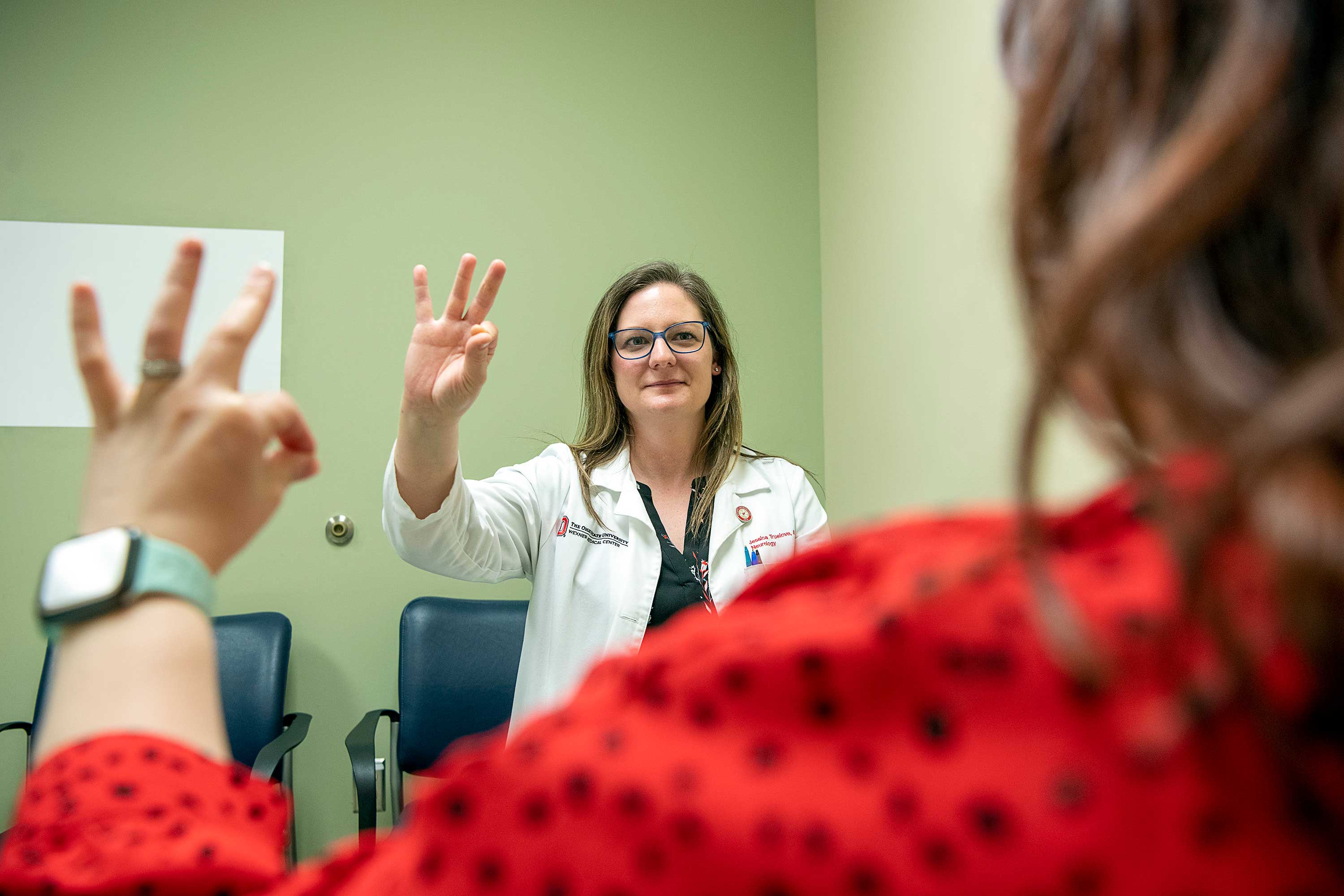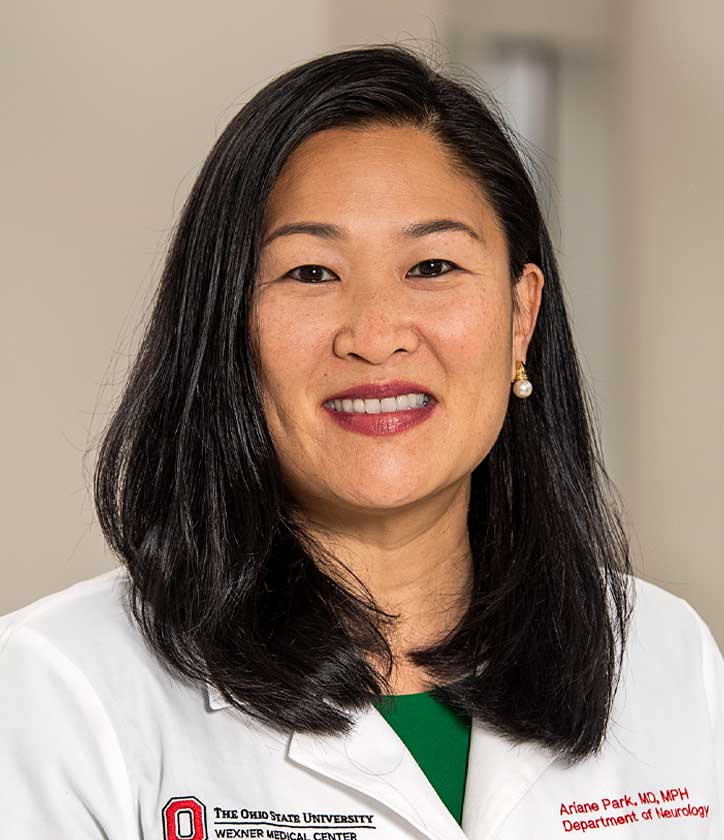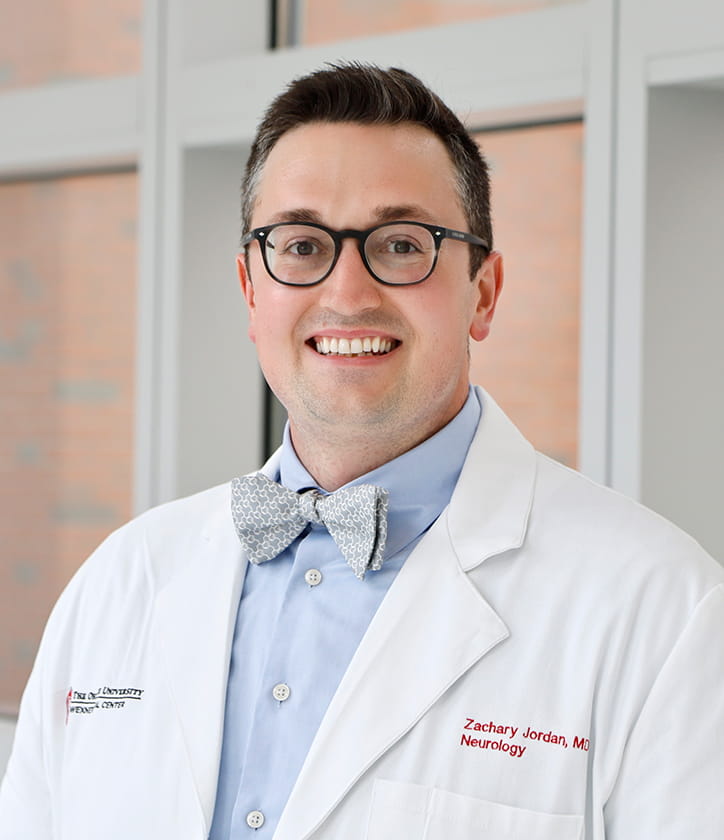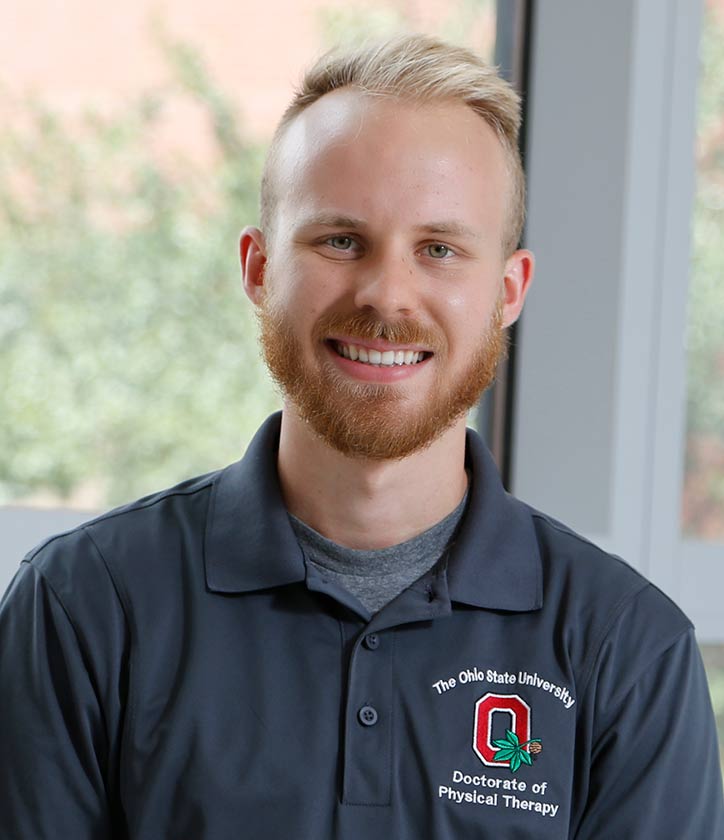Research is an integral part of what makes The Ohio State University Wexner Medical Center such a force in the global medical community. Our investment in research and commitment to the investigative process has led to many breakthroughs and innovative discoveries. We encourage research at all levels, knowing that it can fuel life-changing results now and in the future. Research also keeps our teams engaged and always learning.
At The Center for Parkinson's Disease and Other Movement Disorders, a robust research program and active clinical trials give patients with Parkinson’s disease (PD) the opportunity to try treatments that may be limited to a few locations or not even available elsewhere. Given the chronic nature of PD and the varied symptoms faced by each patient, this can be a gamechanger.
Research options at Ohio State
Many people wonder about the difference between research and clinical trials. Types of research can vary tremendously, and clinical trials are simply a kind of research. However, research can also include work in the lab or even surveys of patients to collect health history and unique experiences so we can improve how we prevent, diagnose and treat diseases.
 If you’re involved in a clinical trial for PD, you might be among a select group of people offered a new medicine, therapy, medical device or other quality-of-life advantage. It’s important to know that nothing is offered in a clinical trial until it has already been thoroughly studied and tested for safety and effectiveness.
If you’re involved in a clinical trial for PD, you might be among a select group of people offered a new medicine, therapy, medical device or other quality-of-life advantage. It’s important to know that nothing is offered in a clinical trial until it has already been thoroughly studied and tested for safety and effectiveness.
Participation in clinical trials is completely voluntary, and you may withdraw at any time. Your care team can discuss PD trials that are currently recruiting patients, explain the risks and benefits and help you explore your eligibility, as most trials have a list of requirements based on age, gender, symptoms or other factors.
Participate in PD research
The Center for Parkinson's Disease and Other Movement Disorders is involved in ongoing clinical trials, observational studies and nonpharmacological treatment trials. If you’re interested in participating in our research, please contact us at pdresearch@osumc.edu or ask a member of your care team for more information.
If you’d like to explore a list of current clinical studies at Ohio State Wexner Medical Center, visit studysearch.osumc.edu. Under “Find a Study,” use Parkinsons as the keyword for your search.
Participate in PD GENEration study to map the future of PD
PD GENEration is a nationwide initiative sponsored by the Parkinson’s Foundation to offer free genetic testing and genetic counseling for individuals with Parkinson’s disease. By participating, you’ll be contributing your genetic information for researchers to better understand the potential genetic causes of PD, opening the door for better and more effective treatment options.
Additionally, certain genetic variants – detected via these tests – may make you eligible for certain clinical trials.
How long does it take to get results?
After some initial background information and medical history questions, participants will come to Ohio State for an in-person visit to consent to the study, have their blood drawn for genetic testing, and pre-testing genetic counseling. After about 3 to 5 weeks, our genetic counselor will disclose your genetic testing results. You’ll learn about the potential role your gene(s) played in your diagnosis of Parkinson’s and the potential risk of PD for others in your family.
How do you sign up for GENEration study?
To participate, email a member of our neuro genetics team at Ohio State at 614-688-6419 or email us to get more info about GENEration study.
Participate in the Topaz study at no cost, without ever leaving your home
People with Parkinson’s disease (PD) and parkinsonism have a higher risk of bone fracture, especially hip fractures. The Ohio State University Wexner Medical Center is participating in the Topaz study, which will test if an FDA-approved medicine called zoledronic acid can prevent bone fractures in people living with PD and parkinsonism. The goal of the study is to help those with PD or parkinsonism avoid bone fractures, which can restrict your mobility for a long period of time and impact your quality of life.
Experts in bone health and PD are leading this study, which is endorsed by the Parkinson’s Foundation and the Parkinson Study Group and is being funded by the National Institute on Aging. Since zoledronic acid is not specifically approved by the FDA for treatment in PD or parkinsonism, this is an investigational research study.
How can you participate in the Topaz study?
You may be eligible to join the study if you have PD or parkinsonism, are 60 years or older and haven’t suffered a previous hip fracture.
If you’re eligible, a nurse will come to your home to give you a short health exam, and you’ll receive a one-time dose of the study treatment (either zoledronic acid or placebo). During the study, participants will be contacted every four months to assess if they’ve had any new fractures. The length of the study contact will be five years.
To learn more about participating in the Topaz trial, please contact a member of our team at pdresearch@osumc.edu or call 614-688-6685. You can also visit the topazstudy.org.












